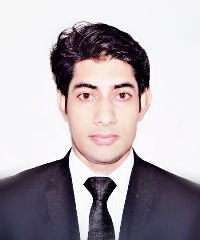10 out of 200: Between virtual reality and cricket – Muhammad Zahid Iqbal develops apps to make our lives easier

Meet Muhammad Zahid Iqbal, computer scientist and one of this year’s 10 out of 200 young researchers participating in the 6th Heidelberg Laureate Forum from September 23-28, 2018.

What is your name and nationality?
My name is Muhammad Zahid Iqbal and I am from Pakistan.
Where did you study and where are you currently based?
I did my MS Computer Science from Information Technology University, Pakistan. Now I am doing my PhD in Ireland.
What is your current position?
I am currently a PhD Scholar at University College Dublin, Ireland. Besides that, I also work as a Software Engineer.
What is the focus of your research? What is your research project?
My research is focusing on the human-computer interaction, augmented reality, virtual reality and technology for education. Currently, my PhD research is focusing on adaptive learning using AI in augmented reality applications. My previous research was focused on a smartphone application as a teaching assistant for instructors, and I did another project developing an online Braille learning system for the parents of visually impaired students.
Why did you become a computer scientist?
I have a passion for playing with code, developing software for human use and solving real world problems by using information technology. I want to serve my country in research and development by working as a professional scientist.
What are some of the fundamental challenges you have faced in your academic career?
I belong to an area of the country where the literacy rate is too low. I did my college-level education at the local institutes. When I entered to the university education, I faced financial problems. I worked hard as a freelance software developer and digital marketer to meet these expenses and to be finally able to pursue a higher education.
What do you feel are the greatest pressures facing scientists today?
I belong to a developing country and there is a lack of resources and funding for researchers. There should be efforts to give honor and identity to researchers. Also, there is the need to empower the merit and policies which can enhance their opportunities.
What are you doing besides research?
I love to work on software development and digital marketing projects as a freelancer throughout the world. In sports, I love to play and watch cricket.
How did you hear about the HLF and why did you apply?
I got this information through a channel of ACM SIGCHI email and it was a really attractive opportunity for me to meet the genius minds of the world.
What do you expect from this meeting?
I expect to network with young researchers from computer science and meeting with high achievers. I love to learn about life as a researcher and moving towards the world’s most demanding research. I want to listen to these people about what is happening in their countries in the field of computer science. It will be a career highlight for me.
Which laureates present at the forum would you really like to talk to and what do you want to ask them?
I will love to get an opportunity to talk to all of them mentioned. I will especially love to talk to the laureates who worked in interaction computing field.
Who were your most important mentors and what lessons did they pass on to you?
My MS thesis supervisor was one of the recent inspirations for me. He inspired me through his vision and his continual learning to create new paths in life.
Why do you think researchers should outreach the public via twitter?
I am an active Twitter user (@iMZahidIqbal) and I really believe Twitter is one of the best social media platforms for researchers to reach out to other people.

